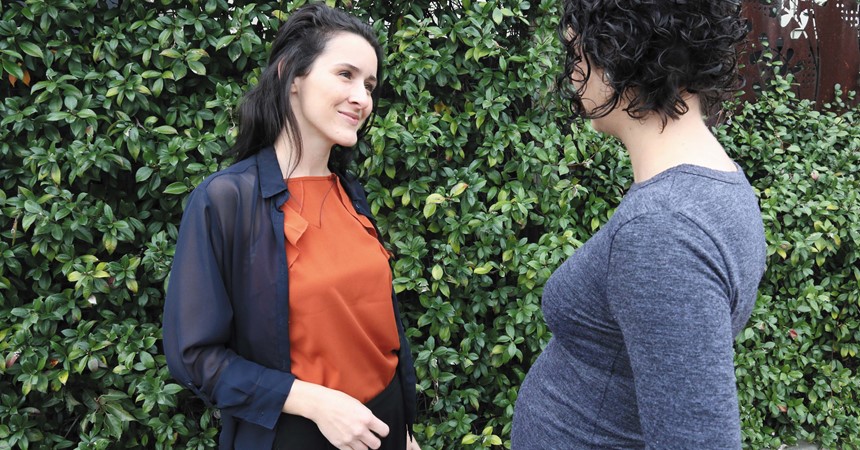In terms of open adoption, I help parents to understand how it will affect them should they choose to adopt their child. Open adoption allows birth parents to remain in contact with the child and the adoptive parents; directly, or through an agency such as CatholicCare. We can assist birth parents to explore the options and devise an arrangement that suits them.
Adopting a child is a major decision and I aim to ensure that parents have all the information to make the best decision for all.
Q How has the shift to open adoptions changed the stigma surrounding adoption?
A Closed adoption prevented birth parents from maintaining a connection with their child, severing all contact until the child was an adult and could choose to pursue contact. It ignored the child’s need to maintain links with biological parents, and tended to be viewed negatively due to the psychological harm it caused. Open adoption allows for a relationship between child and birth parents, better providing for the needs of all. It also allows birth parents to be involved in choosing their child’s adoptive parents.
However, open adoption doesn’t remove loss and grief, it just removes the secrecy. There are still concerns about the impacts of adoption.
Q What were the psychological impacts of closed adoptions?
A Knowing there would be no future contact with their child often resulted in immense suffering for birth parents. Parents would often experience guilt and a sense of failure, as well as fearing their child wouldn’t understand their reasons for adopting. Closed adoptions left birth parents feeling shut out of their child’s life.
Adoptees were prevented from asking questions about their birth and its circumstances, which often led to their making up their own – often negative − explanations. For adoptees approaching adolescence, identity issues were a challenge with family history unknown.
Adoptive parents in closed adoptions were often uncertain about how to discuss birth parents, having little knowledge of them and their circumstances.
Q Why is it important to maintain open communication channels between children and birth parents?
A Open communication between adopted children and birth parents allows birth parents to stay informed about their child’s wellbeing, something that is very reassuring and helps reduce the sense of disconnect. Birth parents want to know their child is happy in a loving family environment. It also allows adoptive parents to be informed about significant events so that information can be passed on to the child.
Having knowledge of birth parents and adoption contributes to a child’s sense of identity. It allows for transparency so there are no misconceptions around the adoption. It also prevents searching for birth parents, allowing them to stay in touch later if they choose.
Q What issues arise from open adoptions?
A Even open adoption is a loss. It is a huge decision and the bond between a mother and her baby must be acknowledged. A child’s attachment to a key caregiver is crucial in its development, and the damage caused by removal from an attachment figure in the first few months of life, whether birth parents or a temporary foster carer, in order to be placed with adoptive parents, shouldn’t be overlooked.
Children may still experience a sense of being unwanted, even if they understand the circumstances of their birth. This can be even more evident if a birth parent discontinues contact or drifts away. When children begin to understand their adoptive mother didn’t give birth to them, they may experience sadness and adoptive parents must be aware of this and validate their child’s feelings. Adoptive parents have to negotiate how to respond when children express their wishes about contact with birth parents.
Birth parents can also feel unworthy of having contact with their child, or they may want to keep contact at a minimum if they feel that it deepens their heartache.
- Adoptions peaked in 1971/72 with around 10,000 adoptions. What have we learned from the treatment of those who had forced adoptions and how has support changed?
Forced adoptions resulted in major adjustment issues amongst birth parents who were made to give up their parental rights. We’ve learnt that mothers need to be empowered to choose what they want for themselves and their child. We also understand that fathers have rights, and can experience the same sense of loss if they are not involved in the adoptive process. Even extended family may experience loss. Decades ago, there was virtually no support for those who adopted; they were expected to carry on as if nothing had changed. Now, parents considering adoption can access support and are required to complete counselling before they can sign an adoption agreement. They are encouraged to talk about their circumstances and the options available and are supported throughout. This can include post-adoption support in the months following their decision to adopt.
Please visit CatholicCare Social Services.




























































































